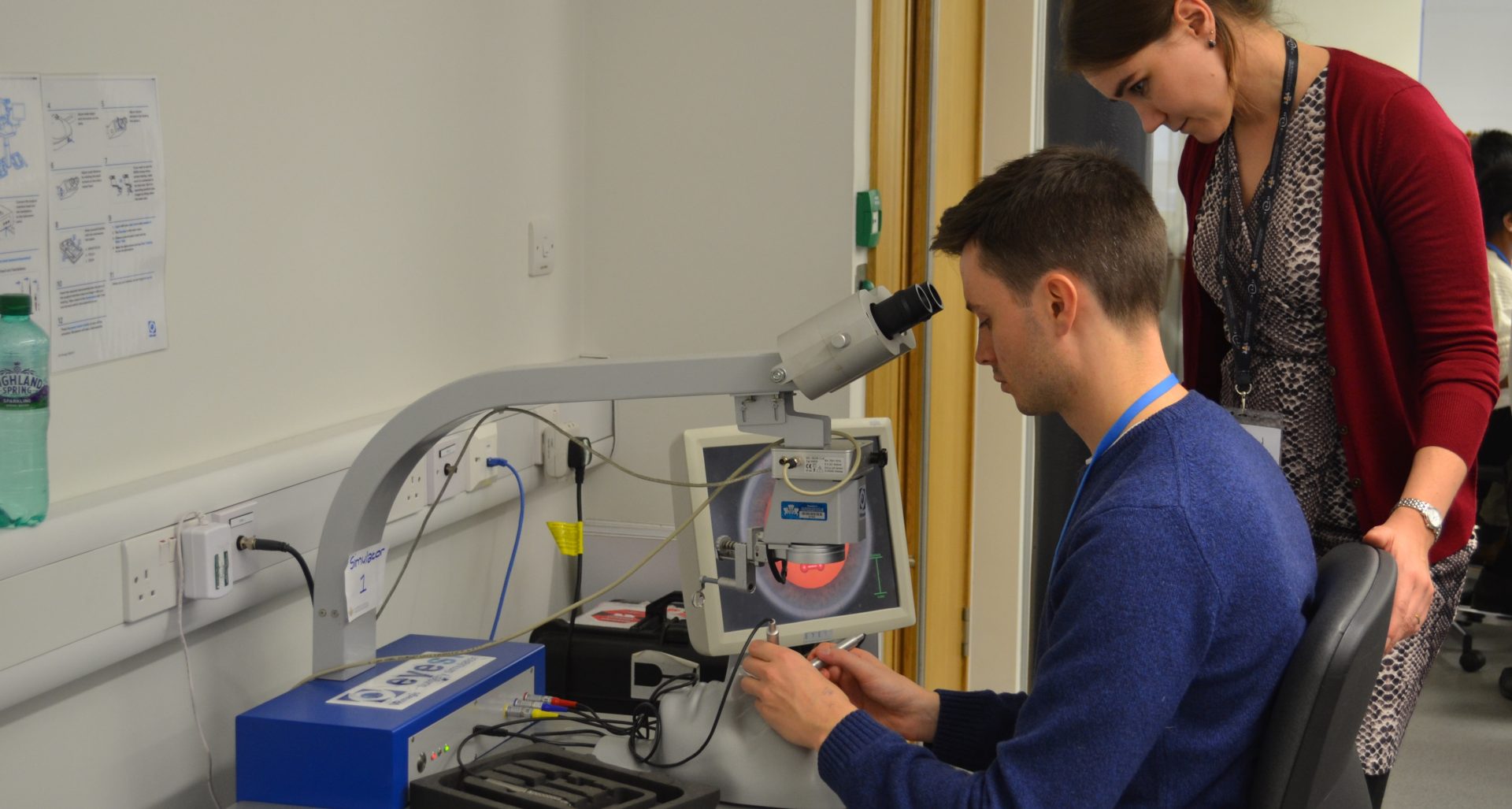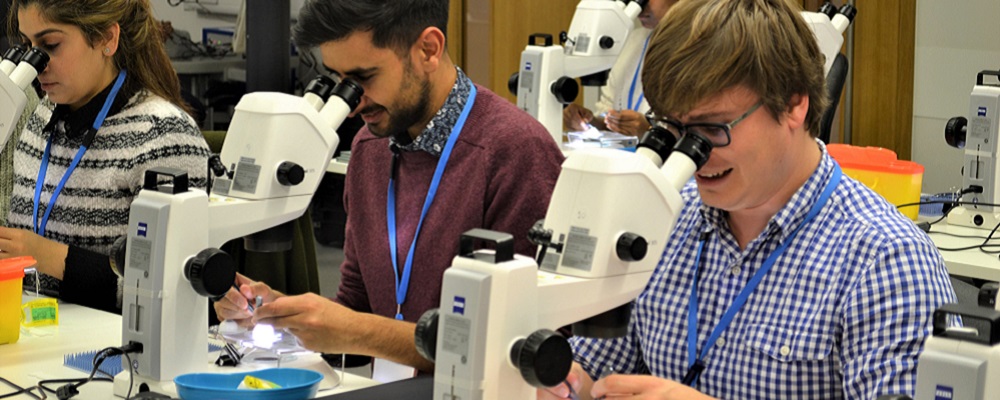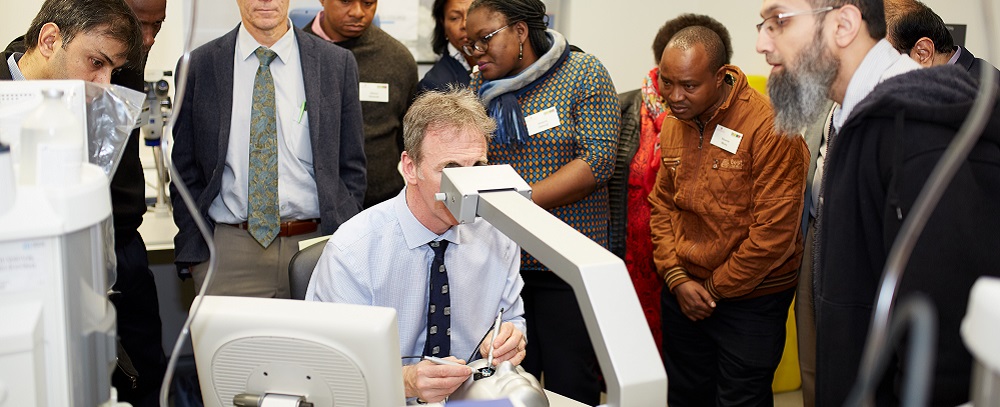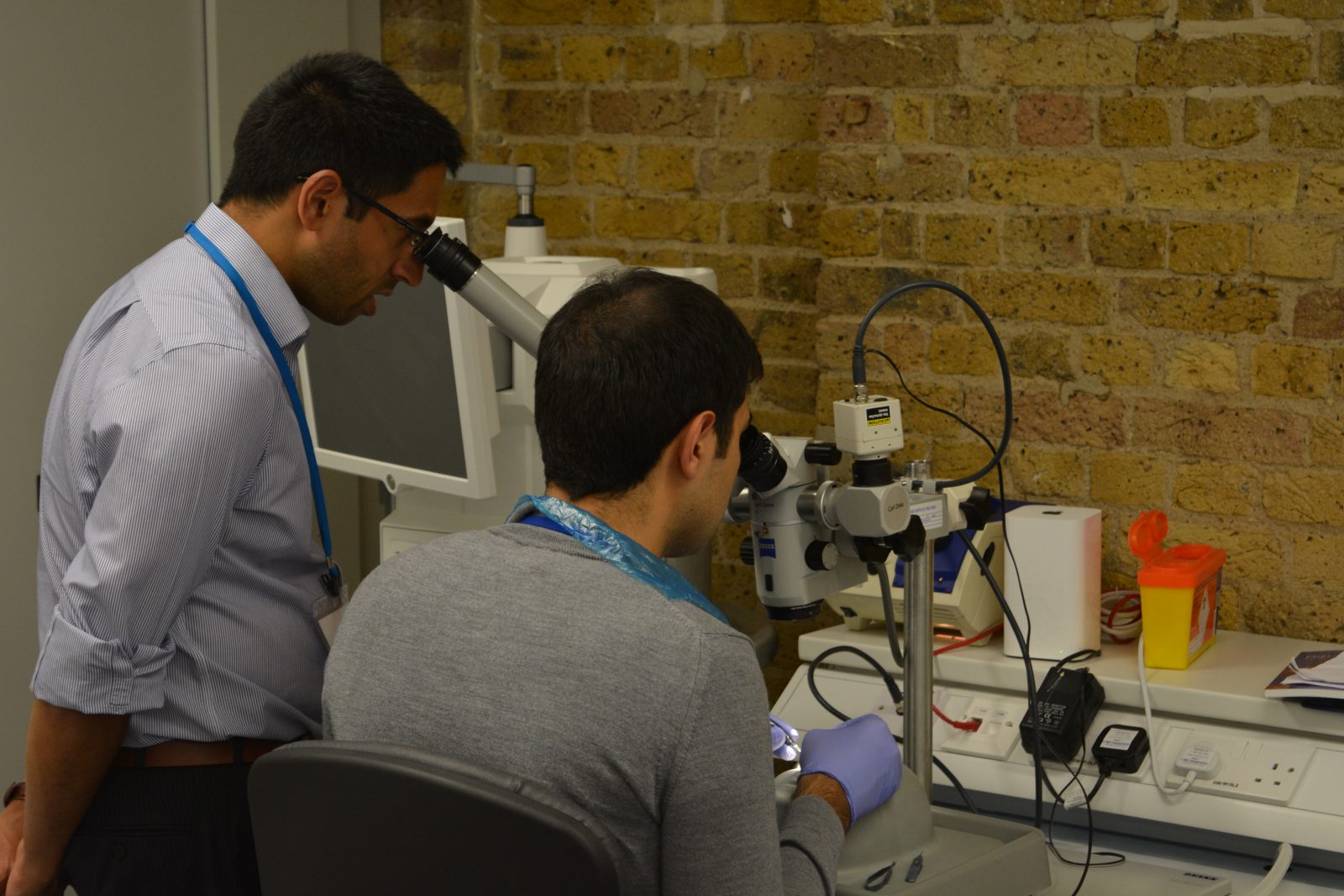Training programmes
There are three training programmes:
- Ophthalmic Specialist Training: Doctors join this programme after completing two years of foundation training and applying for a training post through National Recruitment.
- Ophthalmic Local Training: Non-numbered training posts for trust-appointed specialty doctors.
- Ophthalmic Practitioner Training: Training for postgraduate orthoptists, optometrists and ophthalmic nurses that develops skills in cataract, glaucoma, medical retina or emergency eye care.
How the College delivers ophthalmic training
The College plays an important role in the training of ophthalmologists. We ensure ophthalmologists can provide excellent patient care by:
- Developing and reviewing the curriculum and examinations
- Providing training to perform safe and efficient eye surgery
- Providing awards and scholarships to future trainee’s careers
- Offering advice on education and training issues
- Providing an ePortfolio where trainees can record training progression and continuing professional development
The Education and Training Department is the first port of call for training and education queries.
The role of simulation in training
Simulation facilities help train ophthalmologists in the development of surgical and clinical skills by simulating live surgery situations. Frequent practice on simulators, such as the state-of-the-art EyeSi surgical simulators, enables trainee ophthalmologists to become familiar with surgical steps and finesse their techniques in a safe environment.
More information about simulation
Support for trainers
The College is committed to supporting doctors throughout their careers. Trainers will find the range of resources available on the ‘Support For Training’ pages under each training programme. These pages provide a resource hub for both trainers and trainees.
Find links to the ‘Support For Training’ pages here:
- Support for Ophthalmic Specialist Training
- Support for Ophthalmic Local Training
- Support for Ophthalmic Practitioner Training.





